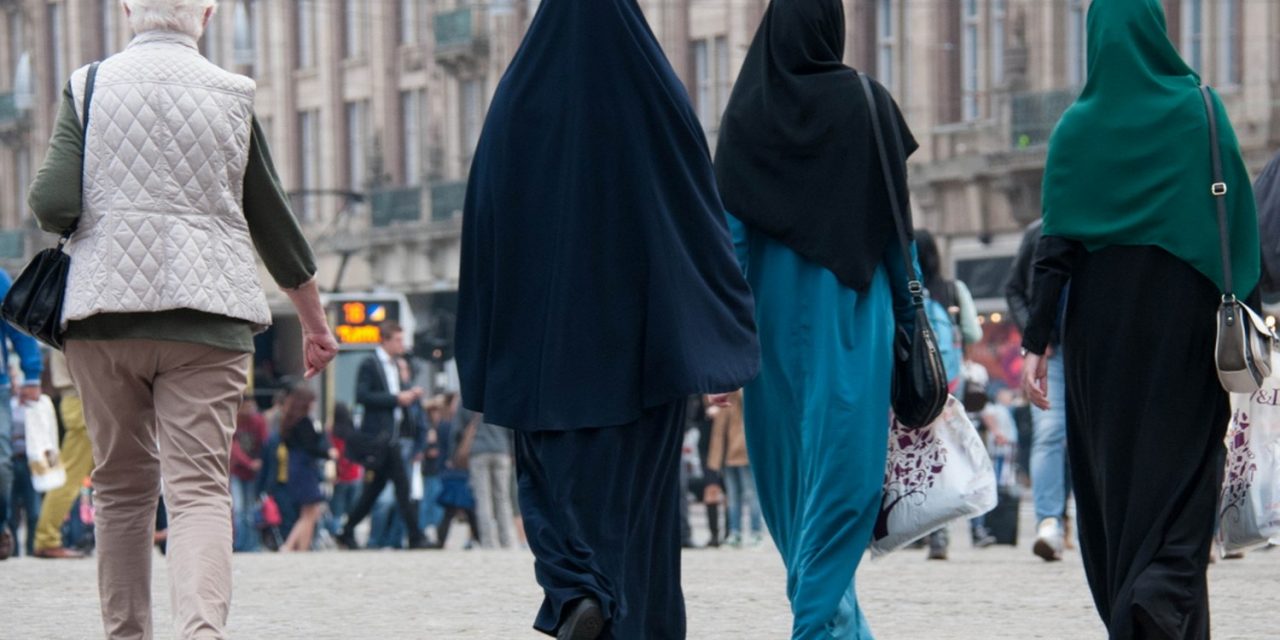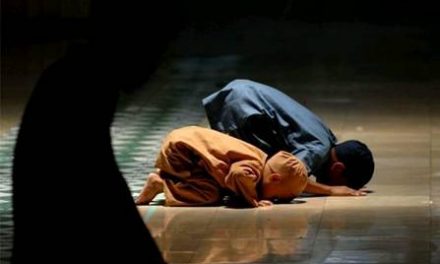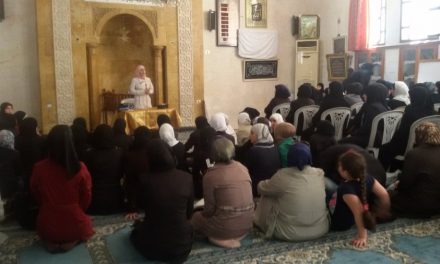Are most women “dwellers of hell” as one hadith says?
There is a popular, negative and unfair misconception about women that has to be cleared. Jabir Ibn Abdullah, may Allah be please with him, reported, according to Bukhari:
I attended Eid Prayer with the Messenger of Allah. He started with the prayer before the sermon, without an Adhan or an Iqamah. Then, he stood up, and while leaning on Bilal, commanded people to fear Allah and obey His commands. He started with the men and advised them, and then walked towards the women and advised them. He said: “Give charity” … Women started giving out their jewelry in charity, throwing their earrings and rings in Bilal’s garment.[1]
I find it an unavoidable duty on myself to critique this particular hadith, even though some readers might find my note offensive, given the high status of the Bukhari Collection. I have to confirm that Imam Bukhari did a superb job in compiling his Collection, but he and his narrators are not infallible. This is especially evident when Imam Bukhari’s own narrations contradict each other or contradict the Quran in a way that is beyond conciliation, which happened a few times in his outstanding book.
In every collection of hadith, events are typically narrated in a number of different ways, with a difference of a couple or a few words between different accounts. Sometimes the difference has no bearing on the meaning of the hadith, whereas in other times the difference is between a sentence that makes sense and is compatible with the Quranic principles and the moral model of the Prophet, peace be upon him, and another sentence, with one word less or more, which implies quite the opposite.
In this particular hadith, and after the Prophet’s instruction for women to give charity, “give charity” as narrated above, he talked with women about hellfire. That was the sequence of his speech according to dozens of narrations and accounts of that day.[2]
However, narrations differed in some significant details. The most famous is Bukhari’s wordings quoted above according to Jabir, in which it is claimed that the Prophet, peace be upon him, after he said “give charity,” directed his speech to his female companions and said: “Give charity, for I saw that you were the majority of the dwellers of hell” (tasaddaqn fi’inni ra’aytukunn akthar ahl al-nar)!
In other narrations, it is claimed that the Prophet, peace be upon him, talked about hellfire and the majority of women in general, not this particular group of female companions. In the Bukhari collection too (No. 29), another narration goes: “I was shown hell, and I found that most of its dwellers are women” (ureet al-nar fa idha akthar ahliha al-nisa).
There is a couple dozen similar narrations, in Bukhari and in other sources, with wordings that imply one of the above two meanings. In these narrations, it is claimed that the women, then, asked why this was the case, and the answer was: “Women are ungrateful to their spouses” (yakfurn al-‘asheer), or, addressing the female companions: “You curse too much and you are ungrateful to your spouses” (tukthirn al-la’n wa takfurn al-‘asheer).
I find the above two groups of narrations to be highly problematic and not making sense in the context of a speech on a day of Eid! More significantly, they do not fit the sensitivity and high manners of the Prophet that the Quran confirmed and that he has demonstrated in numerous other instances when dealing with women. How is it possible that the Prophet, peace be upon him, during a celebration of Eid tells his female companions, whom the Quran praised highly in clear terms,[3] that most of them are dwellers of hell? What sense does this make?
It is unfortunate that this false conception and assumed “fact” that most dwellers of hell are women, as implied by these narrations, has had quite on a negative impact on Muslim cultures and the general understanding of the status of women in Islam.
However, there are a couple other narrations, in the Bukhari collection and in others, which conveyed a slightly different wording of the Prophet’s speech, albeit with quite a different meaning. Earlier in the very same Bukhari collection (No. 29), another narration that is according to Abdullah Ibn Abbas this time, goes: “I was shown hell, and most of the dwellers I saw were disbelieving women” (ureet al-nar fa idha akthar ahliha al-nisa yakfurn.). The rest of the narration, which describes those “disbelieving women” as individuals who curse everything and are ungrateful to their spouses, now makes sense. Here the Prophet, peace be upon him, is telling his female companions about some disbelieving women who are dwellers of hell, not that they or women in general are dwellers of hell.
In fact, in other narrations, in Ibn Hibban authentic collection for example, the Prophet, peace be upon him, added an example of one of those women who were “dwellers of hell.” He described, “a tall woman from Himyar, who tied and starved her cat with no food or drink, and would not let her eat anything including the insects on the ground” (imra’ah min himyar tuwalah rabatat hirrah laha lam tut’imha wa lam tasqiha wa lam tada’ha ta’kul min khashash al-ardh).[4] The woman who starved her cat to death is indeed one of the “dwellers of hell,” not the Prophet’s female companions, and not women in general!
[1] Bukhari (1462).
[2] Bukhari (29, 3241, 5198, 6449, 6546), Muslim (2740), Tirmidhi (2602, 2603), Ahmad (2087, 3376, 7891, 5321, 19350, 19479), Ibn Hibban (7615, 7616, 7649), Bayhaqi (1345), Muwatta (445), Nasa’i (1891, 9215, 9216, 9217, 9219, 9220, 11757), Abu Dawud (872, 2882), Al-Bazzar (5340), Jami Muammar Ibn Rashid (20610, 20611), and Tabarani (2485, 12765, 12766, 12767).
[3] Quran 9:100, 48:25, 48:29, 58:22, and others.
[4] Ibn Hibban (7649).






